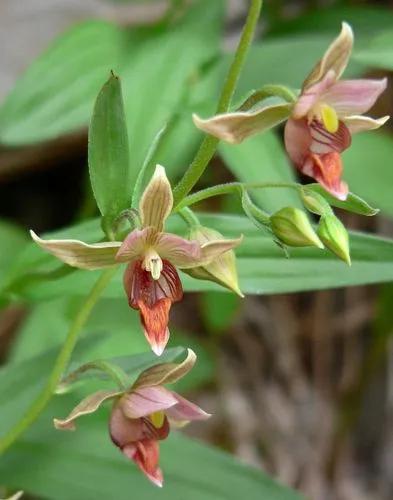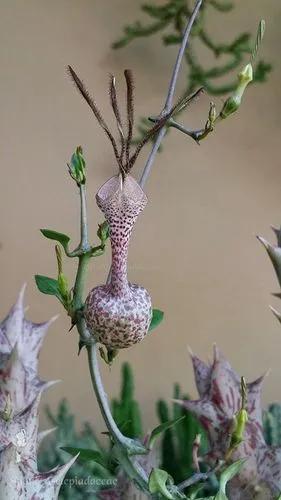Remove overmature flowers during growth period, cutting a part of the stem to the first or second five-petaled. Remember to remove wild stems that grow below the grafting point. Prune in late winter, before the unfolding of new buds, as follows: Shrubs: Hard, rejuvenescent pruning. Leave 4-5 strong, young stems, radiating from the center of the plant, with a length of 30 to 50 cm (3-5 buds). Arboraceous varieties: same pruning directions as in the shrubby varieties, from the grafting mark and above. Climbing varieties: remove the dried branches and prune the secondary shoots, leaving 4-5 cm. from the leading branch. Miniatures: remove all withered flowers and prune away the weak branches. The remaining branches must be pruned up to the 1/3 of their height. Ground covering-varieties: prune by cutting to the 2/3 of their height. Pendent-branched varieties: remove withered flowers and prune away any weak branches.
Pink Panther Care
Rosa 'pink Panther'



How to Care for the Plant

Water

These plants prefer to be kept consistently moist and will thrive if watered weekly in the summer and less frequently in the fall and winter. To check if your plant is ready for watering, feel the soil a few inches down in the pot. If it's dry, it's time to water your plant.

Pruning

Spiderwort is an aggressively growing plant that can get overly leggy if left untamed. To keep your plant in check (and encourage it to grow wider and fuller), cut the stems back periodically, trimming back to a joint. To avoid legginess, regularly pinch back the stems by at least 25 percent.

Fertilizer

Spiderwort plants don't require much, if any, feeding. At most, use a water-soluble fertilizer diluted to half-strength bimonthly. More aggressive feeding can cause the plant's leaves to lose their variegation.

Sunlight

Spiderwort plants do best in bright but indirect sunlight. Place them nearby a window that boasts at least eight hours of sun a day, but be careful to avoid any direct rays, which can cause the leaves to scorch.

Soil

Spiderwort plants can grow well in ordinary potting soil, as long as it's not over-watered. Overall, they prefer soil that drains well—their roots can easily develop rot if they remain too wet.

Temperature

Any of the species of spiderwort plants will thrive at temperatures between 65 and 75 degrees Fahrenheit; they'll also do fine in warmer temperatures, too. However, the plants should not be kept in sustained temperatures below 50 degrees Fahrenheit, as it might discolor or damage their leaves.

Popularity

390 people already have this plant 154 people have added this plant to their wishlists
Discover more plants with the list below
Popular articles






